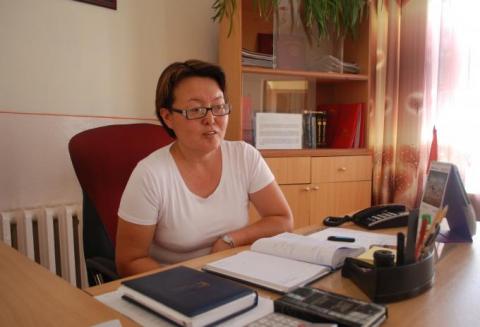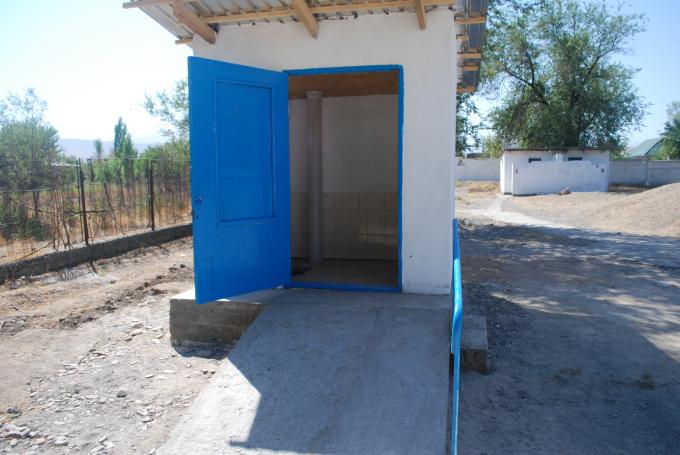Inclusive Education: the challenges of being an headmistress in Kyrgyzstan
“In my school, teachers have not been trained to work with children with disabilities and to support them as they deserve” said Jannara, headmistress, in Moskovskii district, one of the biggest suburban area near Bishkek, Kyrgyzstan. “Now thanks to the European Union and Save the Children we are involved in these activities and we start thinking about children with special needs”.
Jannara Moldaliva has been the headmistress at Suidanov School in Moskovskii district, Chui region, Kyrgyzstan for 13 years. Suidano School is located in a semi-urban area, featured by high internal migration from other regions or neighbour countries and has a consequential mix of different ethnic groups: Dungan (Muslim chinese), Turkish, and Gipsy from Tajikistan.
Suidano school has been involved in the project “Promoting, Protecting and Enforcing the rights of persons with disabilities in Kyrgyzstan”, funded by the European Union and implemented by Save the Children since May 2014. “We have 24 children with different disabilities: visual and hearing impairment, motor disabilities, epilepsies, intellectual disability” Jannara said. “After being involved with the project, I have understood how important it is for children with disabilities to be included in mainstream schools. With the support of community members, we have identified 4 more children with disabilities that are in school age and this year they will start to come to school”.
Children with disabilities in Kyrgyzstan are often left out from mainstreaming schools. Teachers do not receive specific training on how to support children with disabilities; parents are discouraged by the challenges and do not bring their children at school, thinking sometimes that they are not able to learn. Children with disabilities who go to schools face physical barriers and lack of specific infrastructure to facilitate their independency.
In addition to those children, there are other children that are living in difficult situations and they have problems at school. “A big challenge we face is related with children left behind by migrant parents. They live with grandparents, who are not able or not in physical conditions to take care of them. Many children present emotional and behavioural problems and they need special care and attention in school”. Moreover, because of the mix of different ethnicities in the area, “in this school we have children from Tajik and Uzbek families: they don’t know neither Russian nor Kyrgyz” explained Jannara.
With this project funded by the European Union, Save the Children involved Suidano school to improve the living conditions of children with disabilities and their families by removing barriers hindering access to education and creating a positive community environment where their rights are enforced. The first step was to improve the infrastructure to facilitate the access, with a 50% contribution from parents and community members: “With the mini-grant, we improved the access to school for children and we constructed a new toilet with good access”, specified Jannara.
“From October 2014” she continued “the teachers have been involved in the trainings organized by Save the Children and they have been receiving information on how to support children with disabilities or children with difficulties in the learning process”. The third part of the project is to work with communities to identify children with disabilities that are not going to school. Jannara hopes to spread knowledge on how teach to children with disabilities among the teachers of her school and to increase the number of children with disabilities that have access to school.
Save the Children has been working on Inclusive Education in Kyrgyzstan since 1998 with support of different donors, being the leading agency in the country for advocating for the rights of children with disabilities.
 Central Asia
Central Asia 
